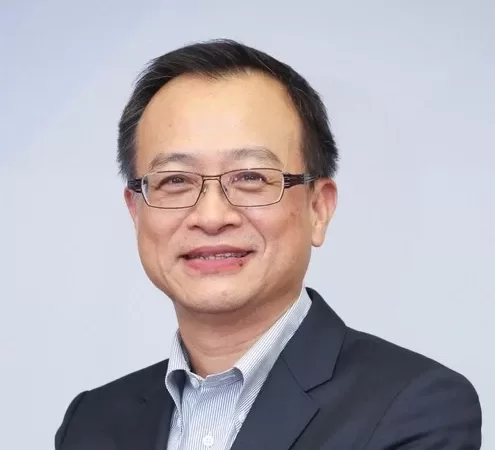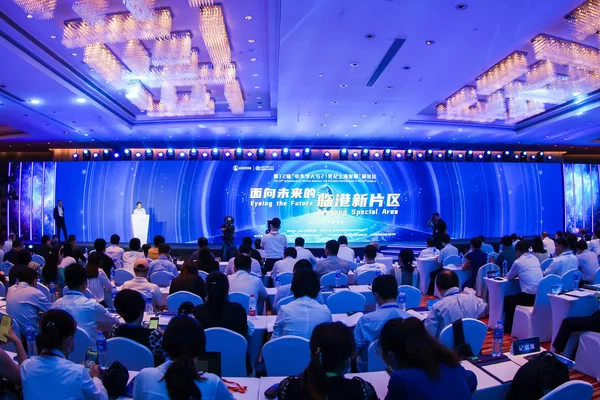BEIJING, Aug. 26, 2021 — Decades ago, no one would imagine that Saihanba – the once barren land located in north China’s Hebei Province – would turn into the world’s largest man-made forest.   China did it. Saihanba now sees a forest coverage of 80 percent, which can…
Discover two emerging businesses at Kalkine Media’s INVEST NEST webinar on August 26
SYDNEY, Aug. 21, 2021 — Kalkine Media is organising the next edition of the ‘INVEST NEST’ webinar series, titled ‘2 Must Know ASX listed Emerging Stories’, on August 26, 2021. There are two emerging companies—Australia-based silica sand explorer VRX Silica Limited and specialist…
China Finance Online Announces Receipt of Nasdaq Delisting Notice
BEIJING, Aug. 14, 2021 — China Finance Online Co. Limited ("China Finance Online", or the "Company", "we", "us" or "our") (NASDAQ GS: JRJC), a leading web-based financial services company that provides Chinese individual investors with fintech-powered online access to securities trading services, wealth management products, securities investment advisory services, as…
Decoding Taiwan’s Information Security Industry’s Dilemma
TAIPEI, July 29, 2021 — Brain Shen, Chairman of Information Service Industry Association (CISA), has recently published an article titled "Decoding Taiwan’s Information Security Industry’s Dilemma", sharing the views of the Information Security development in Taiwan. The full text is as follows: Brain Shen, Chairman of Information Service Industry Association (CISA) In November of 2017, Taiwan held the…
CGTN Think Tank Releases an Analytical Report on the Global Situation of the COVID-19 Pandemic
BEIJING, July 24, 2021 — As the global spread of the COVID-19 pandemic has not yet subsided, the CGTN Think Tank has released an Analytical Report on the Global Situation of the COVID-19 Pandemic (the "Report") by sourcing data from the Johns Hopkins University website, Our World in Data and…
CGTN: China vows ‘lasting stability, high-quality development’ in Tibet Autonomous Region
BEIJING, July 24, 2021 — China’s Tibet Autonomous Region, known as "the world’s last piece of pure land" and "the roof of the world," celebrates its 70th anniversary of the peaceful liberation this year, and the plans for its future development are becoming clearer.   At last…
CGTN: CPC sets example for global development
BEIJING, July 23, 2021 — Chinese President Xi Jinping’s speech at the 100th anniversary of the Communist Party of China (CPC) celebrations reflected the great achievements of the Party in leading China’s socio-economic development. CPC sets example for global development In this anniversary year, it will certainly…
Giant pandas ‘downgraded’: A wildlife success story
BEIJING, July 23, 2021 — A news report by China.org.cn on China’s wildlife protection:   Pandas must be quite familiar to you all. But it has recently been "downgraded". However, this isn’t bad news. With more than 1,800 giant pandas now living in the wild, China has…
Xinhua Silk Road: Broader opening-up underway in Shanghai FTZ’s Lin-gang Special Area
BEIJING, July 22, 2021 — Lin-gang Special Area, a new zone added to the China (Shanghai) Pilot Free Trade Zone (FTZ) in August 2019, is forging ahead on all-around and high-level opening-up. Photo shows the 12th Symposium on Chinese Scholars and Shanghai Development in the 21st Century held in Shanghai on…
2021 Zhongguancun Forum set for September
BEIJING, July 16, 2021 — This is a report from China.org.cn: The 2021 Zhongguancun Forum will be held from Sept. 24 to 28 in Beijing, its organizers announced on Thursday. Co-organized by the Ministry of Science and Technology, the Chinese Academy of Sciences, the China Association for Science and…






